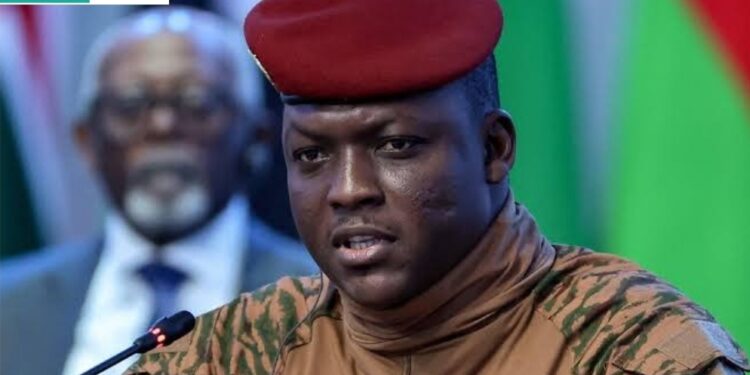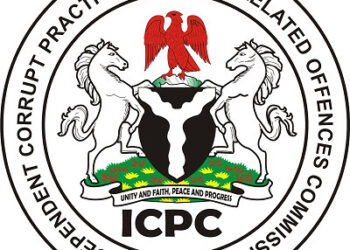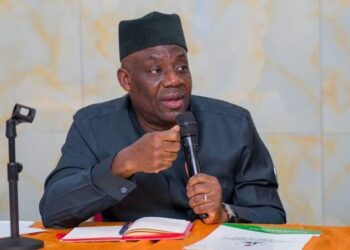The President of Burkina Faso, Captain Ibrahim Traoré, has sparked controversy with his recent comments on democracy and development.
In a flag-raising ceremony at the Koulouba Palace, Traoré stated that no country has developed under a democratic
system, adding that his government is undergoing a “popular, progressive revolution” rather than operating under democracy.
Traoré’s comments have raised eyebrows, with many questioning the implications for Burkina Faso’s governance. The
President argued that democracy is not a prerequisite for development, and that it is often the result of development
rather than the cause.
The Burkinabé leader emphasized that his government is committed to communicating and explaining the principles
of its revolution to the people. He stressed that the notion of democracy is often misunderstood and that his
government is focused on delivering tangible benefits to its citizens.
Traoré’s remarks have sparked a lively debate about the role of democracy in development. While some argue that
democracy is essential for ensuring accountability and promoting economic growth, others contend that authoritarian
systems can be more effective in driving development.
You may also like: Burkina Faso President Challenges Democracy and Development
The President’s comments are also seen as a reflection of the growing trend of authoritarianism in some parts of the
world. In recent years, several countries have seen a rise in authoritarian leaders who prioritize economic
development and stability over democratic values.
Traoré’s government has been notable for its decisive actions since taking office in September 2022. The President
recently rejected an offer from Saudi Arabia to build 200 mosques in Burkina Faso, instead urging the Islamic country
to invest in essential infrastructure projects that would directly benefit the people.
The Burkinabé leader’s approach to governance has been shaped by his vision for a more prosperous and self-reliant
country. Traoré’s government has prioritized economic development and infrastructure projects, with a focus on
delivering tangible benefits to the people.
Traoré’s comments on democracy and development have sparked a range of reactions from the international
community. Some have expressed concern about the implications for human rights and democratic values, while
others have praised the President’s commitment to driving development and growth.
The debate surrounding Traoré’s comments highlights the complexities of governance and development in the
modern era. As countries navigate the challenges of economic growth, stability, and human development, the role of
democracy and authoritarianism will continue to be a topic of discussion and debate.




































